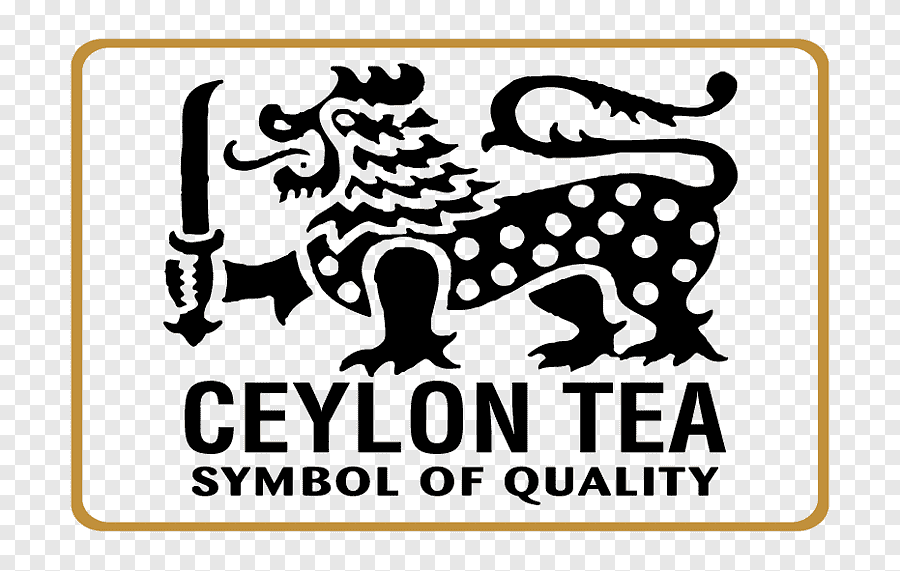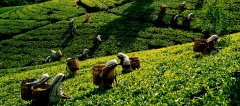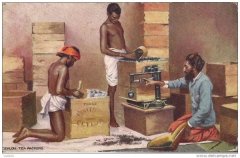How many grams of Ceylon black tea is suitable for bubble? Reasons and History of Ceylon Black Tea Introduced into China
Although most of the Ceylon tea products on the global market come from large tea gardens, more and more small tea farmers are looking for their own niche markets to produce the world's best fair trade organic tea. Under the guidance of strict ethics and practice, these small-scale growers follow strict guidelines when growing tea and do not use chemical or inorganic pesticides or fertilizers in the planting process. Organic regulations are based on guidelines or basic standards provided by the International Federation of Organic Agriculture movements (IFOAM) and the Codex Alimentarius Commission (Codex Alimentarius). Some countries, such as the United States, the European Union, Canada and Japan, have comprehensive organic legislation, which is formulated and supervised by government agencies. In countries where there is no organic law governed by government guidelines, certification is handled by non-profit and private organizations. Currently, Sri Lanka has eight international organic certification bodies that provide certification through inspections by local or external inspectors.

Most Ceylon organic tea manufacturers have international authoritative certification such as Swiss Bio, American USDA Organic (USA), Japanese JAS Organic Farmers & Growers (UK), Australian NASAA (Australia), Holland SKAL (Netherlands), EU Organic Label and other international authorities to meet the market demand. This strongly proves that their products are complete organic sources and can be sold globally as organic products. However, obtaining organic certification is only part of the process. Although nearly 81% of American consumers chose to buy organic products in 2014, they are also keen to prove that the products they buy come from ethical sources. Organic tea traders in Sri Lanka are mostly property owners, small tea gardeners or factory owners who constantly interact with the labor force. Their moral code of fair trade ensures that workers working in tea gardens have good living conditions. Their rights to education, health, fair pay and adequate housing have been concerned and guaranteed by plantation management, creating a happy labour force in the production of the world's most popular fair trade organic tea. International Fair Trade Organization. It gives all fair trade participants in the world close cooperation with fair trade participants in the Sri Lankan tea sector to ensure that the labor rights of employed workers respect every step and the income of external tea farmers $2 per kilogram of organic green tea leaves, the internationally recognized fair trade price of Ceylon tea. In return, these small-scale tea farmers and producers received "International Fair Trade" certification, which brought international recognition and higher prices for their tea products, as well as guidance from international and local experts to maintain best practices, which made tea drinkers around the world and tea farmers in Sri Lanka smile.
Important Notice :
前街咖啡 FrontStreet Coffee has moved to new addredd:
FrontStreet Coffee Address: 315,Donghua East Road,GuangZhou
Tel:020 38364473
- Prev

How much is nuwara eliya Gaoxiang black tea per jin? How to make pure Ceylon black tea sweet?
In the Sri Lankan tea industry, specialty tea or handmade tea has always been a well-kept secret. Ceylon specialty tea is produced on a small scale and is traded among tea connoisseurs who prefer rare tea flavors. Ceylon specialty tea includes white tea, fair trade organic tea, single manor loose leaf tea and flavored dessert tea.
- Next

Sri Lanka fine Ceylon black tea what brand good to drink? Ceylon black tea how to soak only bitter only fragrant
A selection of Ceylon teas, carefully selected and carefully processed to provide you with the most unique tea drinking experience in the world. In the imperial court of China, the best tea flavors and their blends were a secret, and their betrayal was such a great crime that it was punishable by death and torture. However, most of these blended teas are
Related
- What is the difference between Indonesian Sumatra Mantinin coffee and gold Mantinin? How to distinguish between real and fake golden Mantelin coffee?
- What does bypass mean in coffee? Why can hand-brewed coffee and water make it better?
- Unexpected! Ruixing Telunsu lattes use a smoothie machine to foam milk?!
- % Arabia's first store in Henan opens into the village?! Netizen: Thought it was P's
- Does an authentic standard mocha coffee recipe use chocolate sauce or powder? Mocha Latte/Dirty Coffee/Salty Mocha Coffee Recipe Share!
- What is the difference between Vietnam egg coffee and Norway egg coffee? Hand-brewed single product coffee filter paper filter cloth filter flat solution!
- What is the difference between sun-cured and honey-treated coffee? What are the differences in the flavor characteristics of sun-honey coffee?
- How to make Italian latte! How much milk does a standard latte use/what should the ratio of coffee to milk be?
- How to make butter American/butter latte/butter Dirty coffee? Is hand-brewed coffee good with butter?
- Is Dirty the cold version of Australian White? What is the difference between dirty coffee/decent coffee and Australian white espresso?

